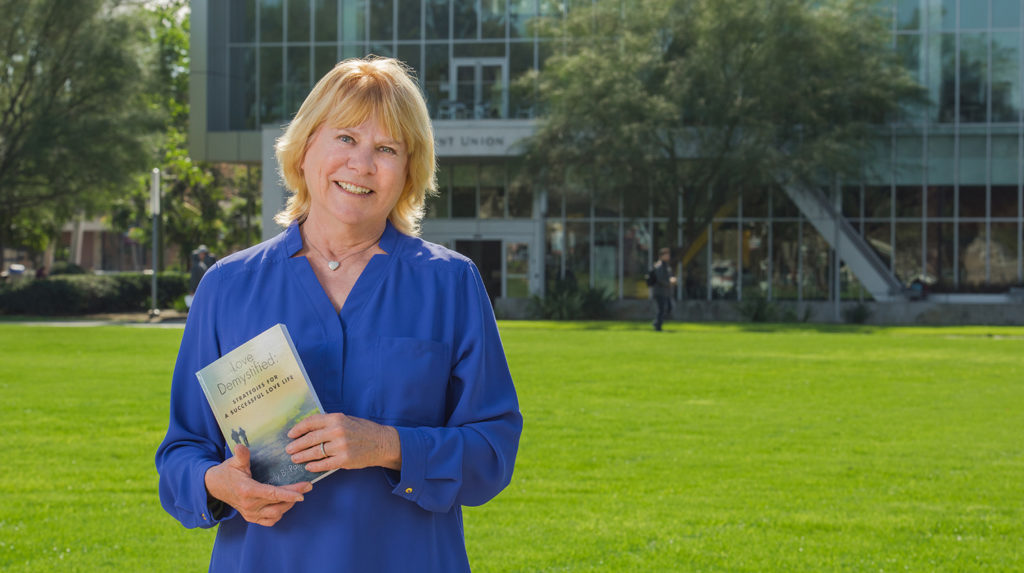By Yeymy Garcia
Features and Lifestyle Editor
If you’re one of those people looking for love, wondering if your current love will last or is right for you, or just curious what all this love business is about, then you might want to pay attention to one our faculty members, Dr. Beverly B. Palmer, who has written a book that attempts to explain love through understanding the science behind it.
Palmer, a CSUDH emeritus psychology professor, gave a sneak preview of her book Feb. 25., in a presentation sponsored by the Psychology Club, Psi, Chi and the Psychology Department. She shared her knowledge on the science behind how love works, the red flags and positive qualities to look for in a partner, and how you can make a relationship better.
Dr. Palmer revealed the stages of love: longing (wanting someone); oneness (you and your partner become one); vulnerability (fighting happens, and feelings are exposed); and empathy (will we last forever?)
“Dopamine and Serotine made me do it” was the caption on one slide. Dr. Palmer explains that dopamine and serotine are responsible for the obsessing stage
If you’re questioning whether you love your partner more than they love you, Dr. Palmer has two recommendations. One, send your partner a funny or cute animal video along with a picture of yourself. Two, do something exciting with your partner that will cause heightened arousal, like riding a roller coaster. What these things are trying to do is make your brain associate a feeling with you.
So, what are the red flags to look for in a relationship?
Some questions to ask yourself are:
- Do they want to do things their way?
- Do they get upset when others disappoint them?
- Do they insist being in charge?
- Do they easily get jealous or suspicious?
- Do they blame others when something goes wrong?
- Do they bully or flatter people to doing what they want?
But you don’t have to wait to see if someone will be a good partner.
“Psychologists say you can predict if a relationship can last during the first few interactions,” Palmer said.
Criticism, defensiveness, contempt, and stonewalling are a few negative interactions to avoid.
The positive traits you should be looking for, Palmer said, are: acceptance (unconditional love, valuing each other’s uniqueness, and accepting each other’s weaknesses instead of strengths), empathy (understanding their experience, motivations, and point of view. Even if you don’t agree with them), and appreciation (letting them know in any way you appreciate them).
At the end of the presentation, Dr. Palmer held a raffle for a signed copy of her book.
Deandra Davis, a psychology major, won the raffle. She was thrilled and enjoyed the presentation.
“I felt like she was talking to me,” said Davis. “I was like, ‘Have you been to my house?’”
Davis checked out the presentation because the topic of love fascinates her, and she also wanted to get tips on how to maintain her relationship of almost three years.
“I learned that I have to work on myself and not put too much pressure on him,” said Davis.
To learn more about what Dr. Palmer has to say about love, you can check out her book, “Love Demystified: Strategies for a Successful Love Life” and her blog, lovelifeprof.com.

